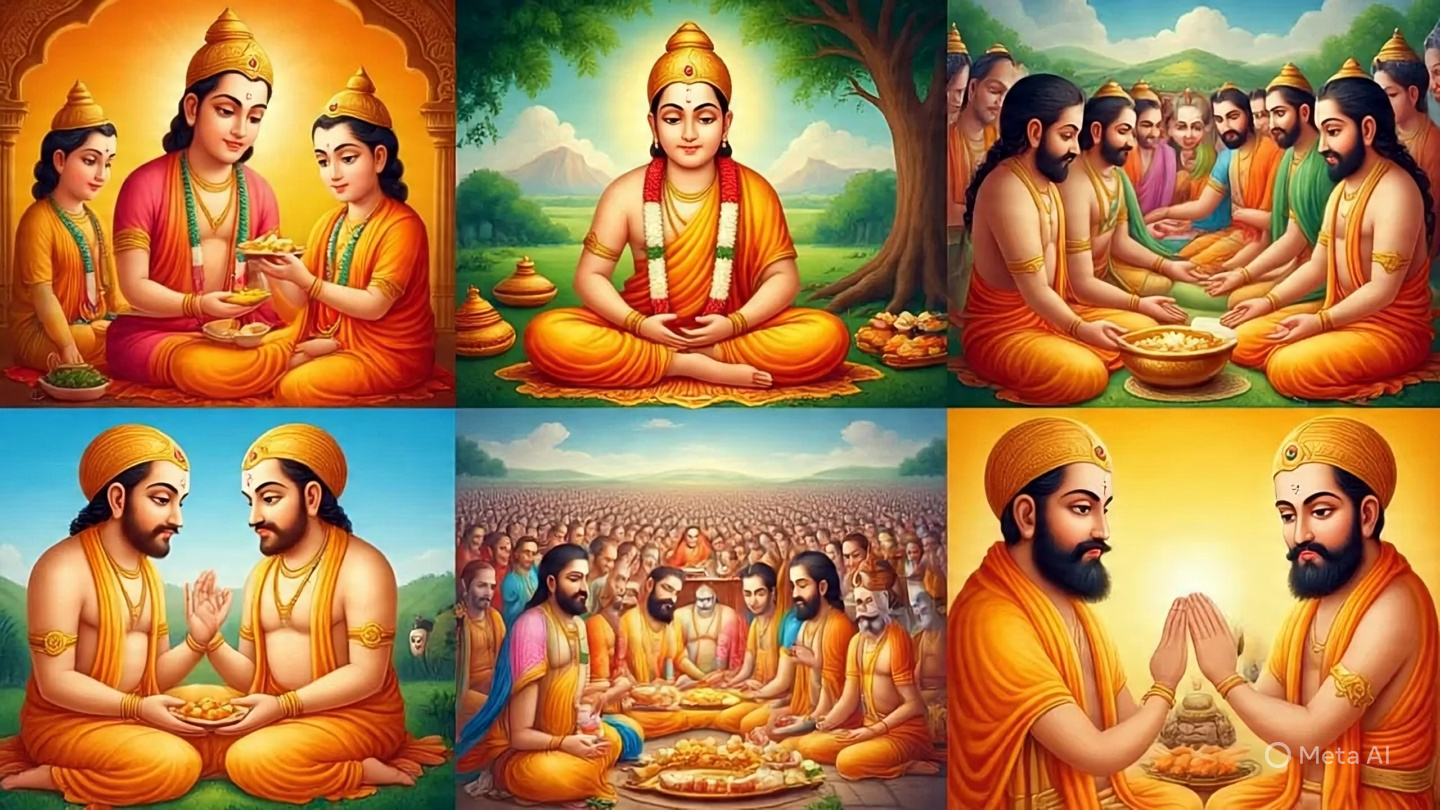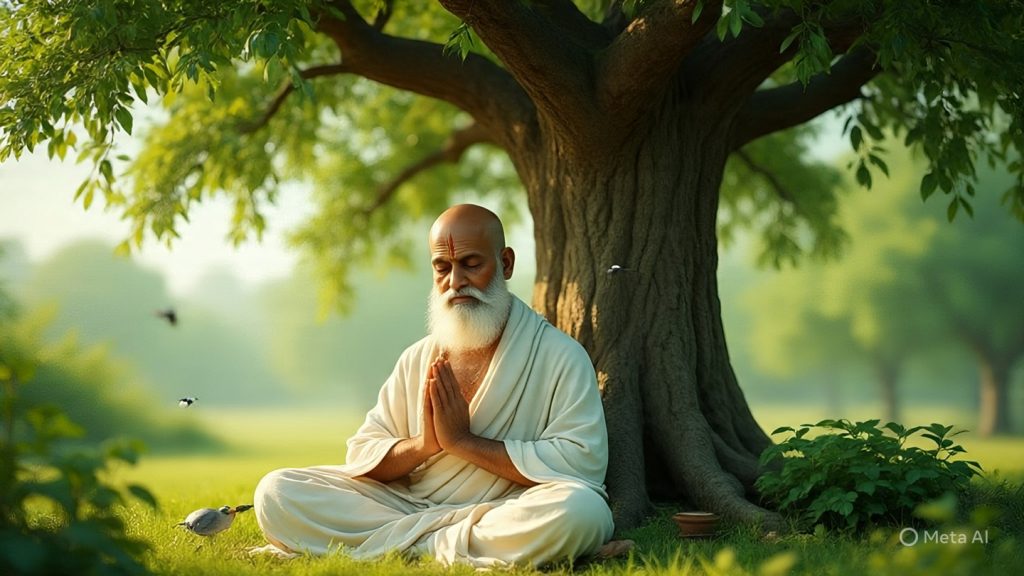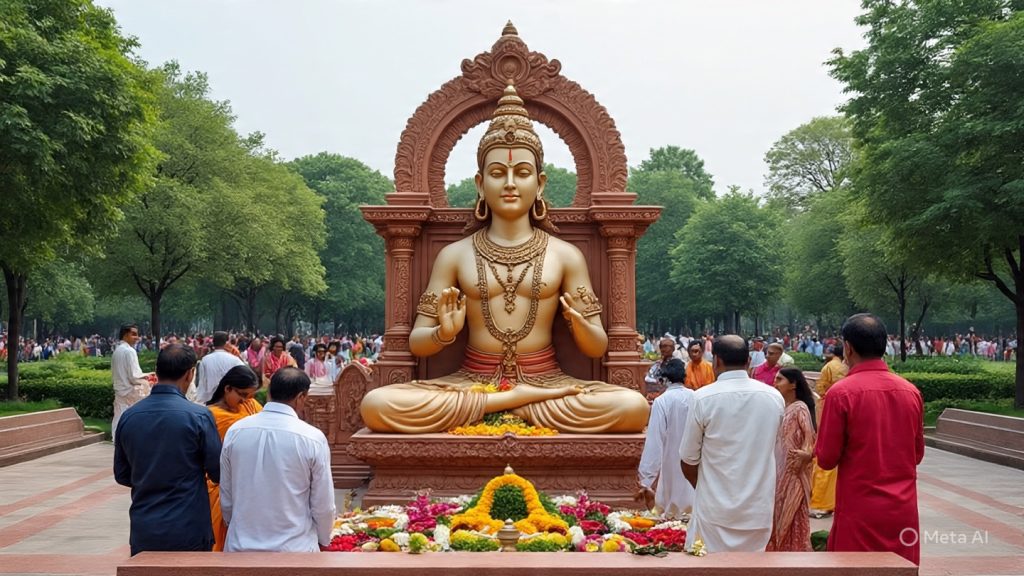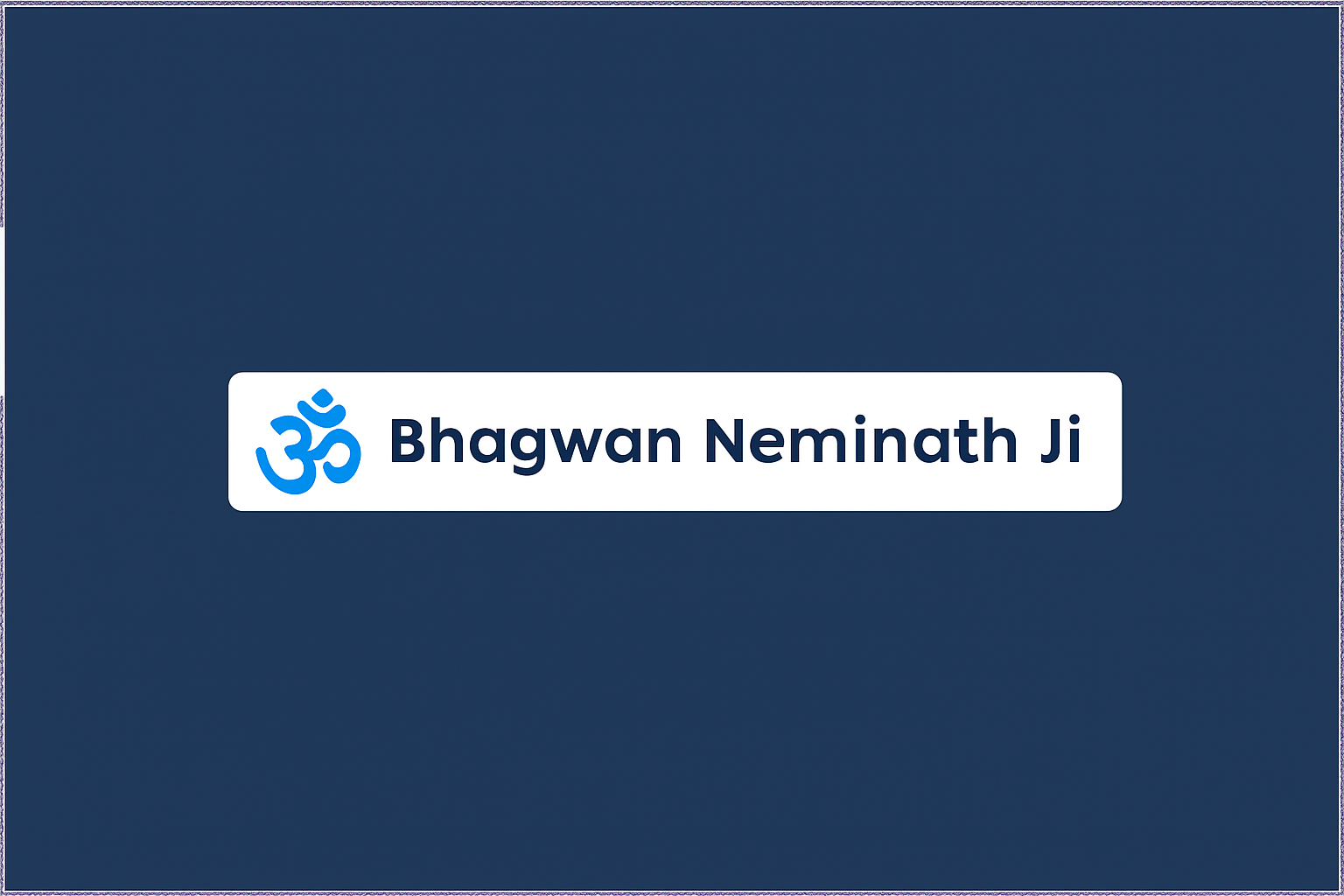Introduction
Every year, millions of Jains around the world end their spiritual festival of Paryushan by saying two simple but profound words:
“Michhami Dukkadam.”
In Prakrit, this phrase means:
👉 “If I have caused you any harm, knowingly or unknowingly, in thought, word, or deed, I ask for your forgiveness.”
This tradition of forgiveness (Kshamapana) is one of the most beautiful aspects of Jain Dharma and directly reflects the compassionate teachings of Lord Neminath.
In this article, let us explore the importance of forgiveness in Neminath’s teachings, the meaning of Michhami Dukkadam, and how we can apply this in our daily lives.
1. Neminath Swami and the Spirit of Forgiveness
Lord Neminath, throughout his spiritual journey, emphasized:
- True compassion begins with forgiveness.
- Violence and anger bind us to karma, while forgiveness liberates us.
- By forgiving others, we purify our soul and cultivate peace.
- For Neminath, forgiveness was not weakness—it was the highest form of renunciation and strength.
2. What is Michhami Dukkadam?
The phrase “Michhami Dukkadam” comes from ancient Prakrit language.
- Michhami = to be forgiven
- Dukkadam = bad deeds or wrong actions
Together, it means:
👉 “May my misdeeds be forgiven.”
By saying this, a person humbly admits that they may have hurt others in some way, even unintentionally, and sincerely seeks forgiveness.
3. Why Forgiveness is Essential in Jain Dharma
According to Neminath Swami:
- All living beings are equal and interconnected.
- Hurting others creates karmic bondage.
- Forgiveness frees both the forgiver and the forgiven.
Thus, forgiveness is not only about human relationships—it is also about spiritual elevation and non-violence towards all beings.
4. The Practice of Kshamapana During Paryushan
During Paryushan, the most important Jain festival:
- Jains engage in fasting, prayer, and self-reflection.
- On the last day (Samvatsari), they ask forgiveness from everyone.
- They say “Michhami Dukkadam” to family, friends, neighbors, colleagues, and even strangers.
This strengthens compassion, removes enmity, and builds harmony in society.
5. Stories of Forgiveness from Neminath’s Life
One famous story:
On the day of his wedding, Neminath Swami heard the cries of animals kept for sacrifice. Moved with deep compassion, he renounced worldly life immediately, choosing forgiveness and non-violence over attachment and pleasure.
This story shows that true greatness is in compassion and forgiveness, not in selfish enjoyment or anger.
6. Forgiveness in Daily Life
Even today, Neminath’s message of forgiveness is practical and relevant:
- In families – Arguments heal when forgiveness is practiced.
- In friendships – Saying sorry strengthens trust.
- In workplaces – Forgiveness removes ego and improves cooperation.
- In society – Forgiveness reduces violence and nurtures harmony.
By practicing Michhami Dukkadam daily—not just once a year—we bring peace within and around us.
7. Forgiveness as a Global Message
The world today suffers from conflict, hatred, and division. Neminath’s universal message offers a solution:
- If nations practiced forgiveness, wars could end.
- If communities practiced forgiveness, harmony would grow.
- If individuals practiced forgiveness, mental peace and happiness would increase.
Forgiveness is the bridge to peace.
8. How to Practice Forgiveness the Neminath Way
Here are simple steps inspired by Lord Neminath:
- Reflect daily – Whom might I have hurt today?
- Apologize sincerely – Say Michhami Dukkadam with humility.
- Release anger – Let go of grudges and resentment.
- Forgive yourself – Practice self-compassion.
- Meditate – Develop inner peace to spread outer peace.
9. The Inner Joy of Forgiveness
When we forgive:
- The heart feels light and free.
- Relationships heal naturally.
- Spiritual growth deepens.
Forgiveness is not just a gift to others—it is also a blessing to ourselves.
Conclusion
Lord Neminath Swami’s teaching of forgiveness reminds us that true spiritual progress is built on compassion, humility, and non-violence.
The practice of saying “Michhami Dukkadam” is not just a ritual—it is a way of life that creates inner peace and universal harmony.
As we walk in Neminath’s footsteps, let us remember:
🌿 To forgive is divine.
🌿 To ask for forgiveness is courageous.
🌿 To live in forgiveness is true liberation.
So today, from my heart to yours:
Michhami Dukkadam. 🙏



